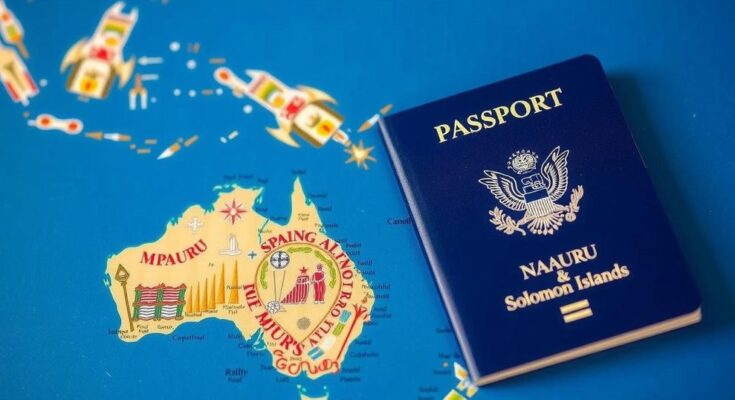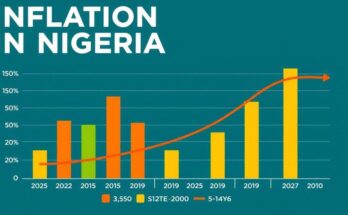Vanuatu recently became the first country to lose its visa-free access to the EU’s Schengen area due to issues with its citizenship by investment program, highlighting security concerns and inadequate vetting. This incident serves as a warning for neighboring nations like Solomon Islands and Nauru, which are considering similar initiatives for economic reasons, emphasizing the need for rigorous oversight and management in such schemes.
In early October, the European Parliament delivered a significant reprimand to Vanuatu, marking the first instance of a nation losing its visa-free access to the EU’s Schengen area. This decision stemmed from concerns surrounding Vanuatu’s citizenship by investment (CBI) program, which, according to rapporteur Paulo Cunha, demonstrated inadequate vetting processes and posed security risks, leading to the assertion that Vanuatu was “selling its citizenship and abusing the European Union’s trust.” Vanuatu’s passport, initially perceived as a valuable asset, now reflects diminished standing, prompting nearby nations like Solomon Islands and Nauru to contemplate similar CBI schemes, albeit with caution.
The drive for CBI programs is increasingly appealing to Pacific Island nations facing economic challenges and climate change repercussions. The Solomon Islands has initiated discussions to draft a CBI legislative framework while Nauru has introduced its own scheme aimed at attracting climate finance. Both nations see parallels with Vanuatu’s experience, which offers insights into navigating the complexities and risks associated with these programs.
Vanuatu’s experience highlights critical lessons regarding the necessity of stringent background checks, regulatory oversight, and robust internal processes to prevent misconduct. The fallout from Vanuatu’s loss of Schengen access further exemplifies how such schemes can lead to severe diplomatic repercussions and a tarnished international reputation if mismanaged. With rising interest in CBI initiatives among nearby nations, it becomes imperative for Solomon Islands and Nauru to heed these lessons to avoid repeating Vanuatu’s missteps.
The recent diplomatic incident involving Vanuatu serves as a cautionary tale for Pacific nations considering citizenship by investment programs. As countries like the Solomon Islands and Nauru contemplate similar paths to boost economic revenue, the Vanuatu case highlights the importance of thorough vetting mechanisms, regulatory frameworks, and the risks of commodifying citizenship. The European Union’s response to Vanuatu sends a clear message regarding the potential consequences of inadequate oversight and management in CBI schemes.
In conclusion, Vanuatu’s recent experiences with its citizenship by investment program offer vital lessons for Solomon Islands and Nauru as they explore similar initiatives. The loss of visa-free access to the Schengen area underscores the need for meticulous legislative and operational frameworks to ensure national security and build trustworthy international relations. By reflecting on Vanuatu’s mistakes, these nations can potentially safeguard their diplomatic standing while pursuing necessary economic reforms.
Original Source: www.rnz.co.nz




